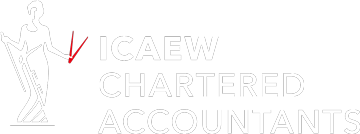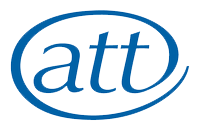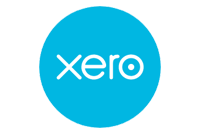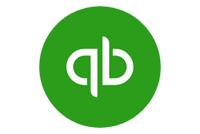Tax rates
Current rates and stipends
The amount of Income Tax you have to pay annually every taxation year relies upon:
- how most of your pay is over your Personal Allowance
- how most of your pay falls inside each duty band
The amount of Income Tax you have to pay on every annual taxation year relies upon:
- how most of your pay is over your Allowance
- how most of your pay falls inside each duty band
Some salary is tax-exempt.
The present taxation year is from 6 April 2019 to 5 April 2020.
Your tax-exempt Personal Allowance
The standard Personal Allowance is £12,500, which is the measure of pay you are not required to pay any on tax. Your Allowance might be higher on the off chance that you claim Blind Person’s Allowance or Marriage Allowance. It’s fewer if your salary is over £100,000.
Personal Tax rates and groups
The table shows the duty rates you pay in each band on the off chance that you have a standard Personal Allowance of £12,500.
Personal taxation groups are extraordinary on the off chance that you live in Scotland.
| Band | Taxable income | Tax rate |
| Individual Allowance | Up to £12,500 | 0% |
| Fundamental rate | £12,501 to £50,000 | 20% |
| Higher rate | £50,001 to £150,000 | 40% |
| Extra rate | over £150,000 | 45% |
You can likewise observe the rates and groups without the Personal Allowance. You don’t get a Personal Allowance on taxable pay over £125,000.
In case you’re employed or receive a pension
Check your Income Tax to see:
- Your Allowance and taxation code
- How much you’ve paid in taxes in the present assessment year
- How much you’re probably going to pay for the remainder of the year
Different stipends
You have tax-exempt stipends for:
- Savings intrigue
- Dividends, if you possess shares in an organization
- You may likewise have tax-exempt recompenses for:
- Your first £1,000 of pay from independent work – this is your ‘exchanging recompense.’
- Your first £1,000 of pay from the property you lease (except if you’re utilizing the Rent a Room Scheme)
See if you’re qualified for the exchanging and property recompenses.
You make good on regulatory obligation on all interests, profits or salary over your stipends.
Reduction in the payment of income tax
You might have the option to claim Income Tax reliefs in the case that you’re qualified for them.
In case you’re hitched or in a common association.
You might have the option to claim Marriage Allowance to decrease your accomplice’s assessment if your salary is not exactly the standard Personal Allowance.
On the off chance that you don’t claim Marriage Allowance and you or your accomplice were conceived before 6 April 1935, you might have the option to claim Married Couple’s Allowance.
Different types of taxes
Corporation Tax
What is Corporation Tax?
corporation tax applies to limited organization benefits after pay rates, and different costs of doing business being paid, yet before profits are pulled back.
Some brokers don’t have to pay Corporation Regulatory tax.
How and when do you have to pay Corporation Government tax?
UK-based limited organizations are required to present an online structure to HMRC yearly called a CT600, which contains subtleties of your organization’s salary, less any tax recompenses and costs.
You have a time frame of nine months one day to pay any corporation tax that you owe as the organization’s bookkeeping period closes (a date known as your organization’s ‘year-end’). You have the choice to pay whenever during this period, yet we profoundly suggest getting this off the beaten path at the earliest opportunity to stay away from fines.
To make good on your Corporation Regulatory tax, you’ll have to sign in to your HMRC online record and pick an instalment technique; you can look over on the phone or web payments, direct charge, through your bank, or utilize an organization Visa.
You can’t utilize an individual charge card, and you can never again pay at a Post Office. You can discover all the data about covering your Corporation Tax tab at the Gov.uk site.
Tax on Income
What is the Income Tax?
Income Tax is paid on certain pay you actually get, for example, compensation and profits and rental pay. Tax on income isn’t payable on any payment from the clearance of advantages, for example, share transfers or in the event that you sell a property which isn’t your principal living arrangement – this would be saddled under Capital Gains.
How and when do have to pay tax on income?
In case you’re a constrained organization chief and draw a pay over the years close to home recompense, Income Tax will be paid at source through your organization’s PAYE. Any profits you make from the organization are exhausted through your yearly Self-Assessment, which must be finished by all organization chiefs.
For sole merchants, Income Tax is paid on the profit you make from your business, which you incorporate on your yearly Self-Assessment government form.
The sum you owe ought to be paid to HMRC before 31st January consistently with any Payment on Account due on 31st July every year.
National Insurance
What is National Insurance?
National Insurance commitments develop your state profits qualification and help pay for open administrations. You’re possibly required to pay National Insurance on the off chance that you are more than 16 and are making a benefit equivalent to or over the essential edge.
How and when do I pay National Insurance?
Similarly, as with Income Tax, in case you’re a limited organization executive, any National Insurance commitments due will be taken through PAYE.
National Insurance for sole brokers is determined in the yearly Self-Assessment and paid to HMRC by 31st January consistently.
VAT

What is VAT?
Value Added Tax (VAT) is added to the cost of most merchandise and ventures. Value-added tax enrolled organizations must charge VAT to clients, yet additionally, have the advantage of having the option to recover any VAT that they have paid on costs of doing business. Organizations are not consequently enlisted for VAT and don’t have to engage except if their yearly turnover surpasses the VAT edge.
How and when do I pay VAT?
he VAT is paid quarterly from the date of your organization’s enlistment. Tank returns must be submitted to HMRC and paid online inside 37 days of the finish of the critical quarter.
From first April 2019, the legislature is getting Making Tax Digital (MTD) for business. This implies all VAT enrolled organizations should utilize MTD perfect programming, (for example, Crunch).
In case you’re enrolled for VAT, you should present a return regardless of whether you have no VAT to pay or recover.
What is the VAT Flat Rate Scheme?
If your business has a turnover under £150,000, it may be valuable to enlist for HMRC’s VAT Flat Rate. This rearranges VAT revealing for private ventures, which means there is no compelling reason to record VAT for individual buys and deals.
Doing this can frequently likewise bring about an expansion in your organization’s pay, as you can even now charge the essential pace of VAT yet pay HMRC a level rate (given your exchanging action).
Tax dates
PAYE Key Tax Dates:
6 April 2019
First day of the new assessment year 2019/20.
5 April 2019
Cutoff time for claiming your PAYE refund of tax for the 2014/15 tax year.
31 May 2019
Duplicates of 2018/19 P60 records given to workers.
6 July 2019
Duplicates of 2018/19 P11d records given to workers.
5 April 2020
End of taxation year 2019/20.
Legal Advice
The Statutory Residence Test was acquainted by HMRC which decide the taxation living arrangement status of people with associations with the UK. The Statutory Residence Test, while sophisticated, is indispensable with regards to understanding your UK taxation status and could imply that your overall salary is dependent upon the UK tax system. Inability to accurately announce and cover the regulatory tax on any salary could prompt punishments and fines.
In case you’re classed as a UK charge resident, you’ll be made to pay tax on your overall pay, except if your real home (‘house’) is abroad. This incorporates:
- Wages, if you work abroad
- Foreign ventures and investment funds premium
- Rental salary from an abroad property
- Income from annuities held elsewhere.
You can claim relief on Foreign Tax Credit when you report your abroad pay on your Self-Assessment government form.
The taxation help you’ll get relies upon the UK’s twofold tax assessment concurrence with the nation your salary originates. You can generally get relief regardless of whether there isn’t an understanding. Which is called Unilateral help; Foreign Tax Credit relief is commonly given at the lower of the real tax endured and the proportional UK tax on a similar pay.
How would I know my tax status?
HMRC have created direction on their site to assist you with understanding your tax living arrangement status. Because of the intricacy of the Statutory Residence Test, it is always prudent to look for proficient guidance from an accountant to decide your residence status.
When do I need to finish a Self-Assessment?
You need to document your Self-Assessment by 31st January after the finish of the taxation year to which applies. Taxation years run from 6th April to 5th April. You don’t need to pause, however. In case you’re working at a job, you can present your Self-Assessment when you get your Form P60 from your manager.
On the off chance that you run your very own organization, you’ll have to give the Form P60 from your PAYE framework or get your bookkeeper to set it up for you. On the off chance that you’re a sole dealer, at that point, you can document your Self-Assessment when the tax year closes. There are bunches of reasons why documenting your Self-Assessment at an early stage is a smart thought.
What occurs on the off chance that I don’t enrol and document in time?
If you neglect to tell HMRC, you may confront a fine or punishment and should submit Self Assessments for earlier taxation years where relevant. In case you’re uncertain whether you’ve enrolled, you can contact HMRC with your National Insurance number close by to affirm somehow. HMRC are getting progressively severe on cutoff times and punishments for late returns, so we can’t stress enough that it is vital to get your Self-Assessment recorded on schedule.
Important Tips

Now let’s have a look at some important tips related to Tax in the UK.
Do I have to round out an assessment form?
You should round out an assessment form if you are: independently employed and work alone as a sole dealer; are an accomplice in business or are an organization owner (except if it’s an unpaid situation for a non-benefit association or philanthropy). You additionally need to round one out on the off chance that you have a job and are paying government taxes through PAYE yet acquired independently employed salary as well.
There are different conditions where you may need to round out a self-appraisal structure. For instance, on the off chance that you are a higher rate citizen, you’ll have to round out a government form to claim back extra tax help on your annuity commitments. If you or your accomplice acquire more than £50,000 per year and claim kid advantage, you need to round out a self-evaluation structure to pay a portion of the advantage back.
On the off chance that you aren’t sure if you have to round out a structure, you can check here.
What do I have to make public?
You need to report all that you’ve earned over the duty year from 6 April 2017 to 5 April 2018, which incorporates pay from business, independent work, property and premium and gains on your reserve funds and ventures.
How might I cut my bill?
There are an entire host of ways you can cut your taxation bill. The primary one is by asserting costs, as organizations (regardless of whether you are only a small-time band) don’t need to pay VAT on charges brought about in the everyday running of their tasks.
On the off chance that you are independently employed, you can claim costs, for example, an extent of vitality costs if you telecommute, accommodation and travel costs. You can even request a part of your home loan enthusiasm for some instances. The taxman clarifies what expenses you can claim and how to figure them here.
In Conclusion
The UK tax system is pretty complex if you have no idea about accounts. Moreover, if you don’t have the relevant information regarding your business structure, it will become more of a hassle. So, in order to pay as little as possible in taxes, you need to stay on top of everything. It is advisable to stay closely in contact with a professional account as they know everything about the tax system and can guide you the best.












